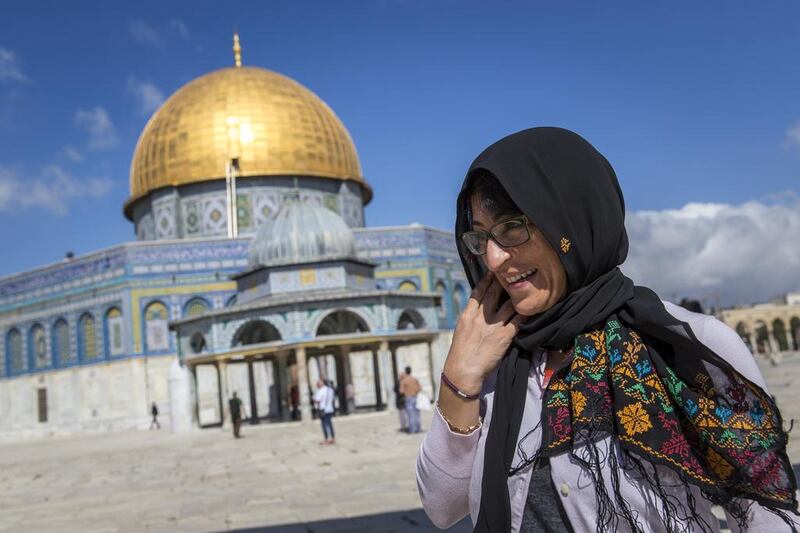Success does not kill self doubt. In some cases, it only exacerbates it. Such was the case when Susan Abulhawa began writing the follow-up to her hugely successful 2010 debut Mornings in Jenin.
“It was a terrifying experience because I was afraid of letting people down. That I was really not a writer. That the first book was a fluke. I was afraid I was a fraud and people were going to hate me,” she says during a recent Dubai stopover.
“I had all these voices and self-doubt in my head, until I reached a stage where I realised that I can’t care. That I can’t have any loyalty to my reader, publisher, anything or anyone – except for the characters and the truth of their lives.”
The realisation resulted in The Blue Between Sky and Water, a novel set in Palestine, where a female-centric cast navigates family ties and issues of displacement.
That said, Abulhawa cautions those who pick up the book in search of a political message. “It’s a story,” she warns. “Take it for what it is.”
You have been touring internationally after The Blue Between Sky and Water. For a story rooted in a specific location, what was the feedback from your readers?
They have their own baggage, experience, stereotypes, preferences, wounds and hopes when it comes to the narrative. I find that people get different things from my books: they interpret it depending on where they are coming from. That is a really interesting thing for me as a writer because the reader really brings a new element to the book that has nothing to with me or the characters. It becomes more of a private thing with the reader.
Are you comfortable with that?
It’s not always good because that means people sometimes have stereotypes that they insist upon. They have trouble viewing Palestinians outside of those stereotypes. That is specially the case when it comes to people who are so sharply defined to some readers in the west. At the same-time it can be wonderful, too, because people do bring in their own experiences of displacement and exile and they are touched by different characters.
You are acknowledged as a human-rights activist. Do you feel that readers and journalists often view your novels as an extension of your advocacy?
Because I am Palestinian and the setting of my book is Palestine, readers, reviewers and interviewers see politics and activism. They see the reflections of their own ideas rather than what it really is. I would just read it for what it is – a novel, a story about women, their struggle; about Gaza; violence; love; and being broken emotionally, psychologically and physically. There is a lot of humanity here, and I don’t like the reductionist language of catchphrases such as ‘shedding light’ and ‘the plight of Palestine’. Look at it as a work of art and judge it on those merits.
So your novels don’t contain a message of activism?
I don’t think I am trying to put any message. I am just trying to know my characters. I am writing their story just for the sake of creating art. It is not activism, not advocacy, not shedding light or message. Instead, it is a story, it is life, it is love and the full spectrum of humanity. It’s a story that takes place in a particular part of the world, in a political, social, and economic context.
From the fierce, clairvoyant Nazmiyeh to the more delicate Um Mahmoud, The Blue Between Sky and Water boasts series of strong and colourful female characters. How did that come about?
That’s what I was interested in and that’s what I understand best. I lived in a family of mostly women, and I was so interested in the relationships they had with each other. My grandma was a huge, imposing and strong matriarch figure in my life. But at the same-time she was a gossip who loved catching up with her friends. I loved exploring that world and that what’s came out of the novel.
Film Works Dubai brought the film rights to Mornings in Jenin in 2011. What is the status of the project?
The producer who purchased the options right actually passed away – may God have mercy on him – and the rights reverted to me. Honestly, I am not pursuing it. If it happens, it happens. Writing stories is like loving and nurturing babies, and they eventually grow up and enter the world. They touch lives, they talk to people and people talk about them. People love them and hate them. It is just fun for me to see how they go in the world. As for me, I just have to move on to the next thing.
• The Blue Between Sky and Water by Susan Abulhawa is out now
sasaeed@thenational.ae






